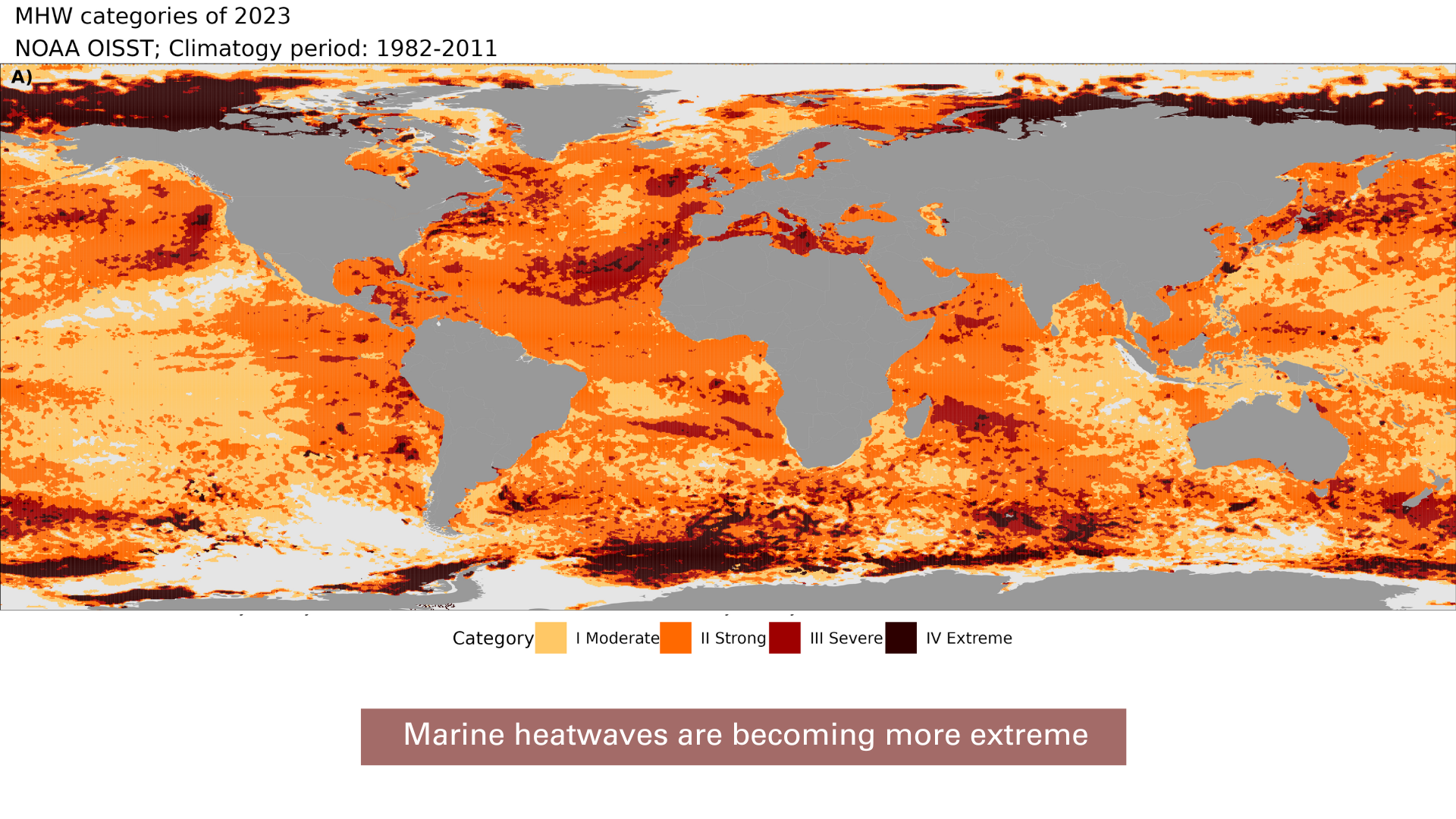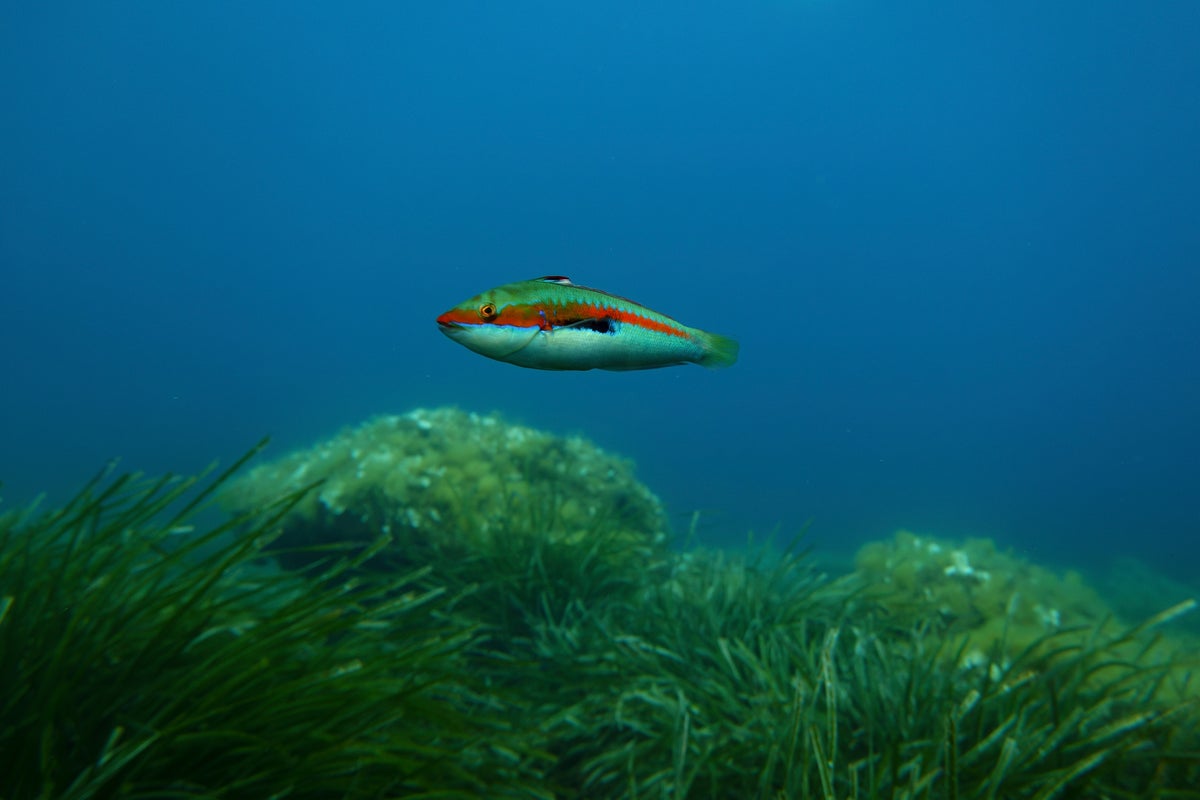Oceans have absorbed enough heat since the Paris Agreement was signed to match the energy of 1.7 billion atomic bomb explosions, scientists warned just as the UN Ocean Conference got underway in Nice.
The figures were shared by researchers on the sidelines of the summit where delegations from countries were working to create a global treaty for ocean conservation.
Scientists said warming was accelerating changes in marine systems, driving sea level rise, sea ice loss, and increasing marine heatwaves.
“Global warming over the last 10 years equates to about 1.7 billion atomic bomb explosions,” said Alex Sen Gupta, associate professor at the University of New South Wales.
“If we divide this by the number of seconds in 10 years, it’s equivalent to about five atomic explosions worth of energy every single second. Clearly this is having an effect on the ocean – it is causing the sea level to rise, our ice systems to melt, and our atmosphere and oceans to warm.”

As the conference opened on Monday, UN secretary general António Guterres said the world “must move from plunder to protection to save the oceans”.
Among the most serious warnings are new records set for sea surface temperatures this year, an all-time low for global sea ice, and what scientists say is the largest coral bleaching event ever recorded, affecting 84 per cent of monitored reef areas.
“My recent research has shown that marine heatwaves have caused severe impacts globally over the past few years,” said Dr Kathryn E Smith of the Marine Biological Association of the UK.
“We’ve seen more fisheries collapses, mass mortality events, and damage to ecosystems. The warming oceans have also fuelled storms on land causing billions of dollars in damages and resulting in thousands of deaths. These impacts have all occurred before we have reached the 1.5 C benchmark. A decade on from the Paris Agreement it is clear that it’s even more important than ever that we make every effort not to exceed the warming limits agreed in 2015.”
-in-Monaco-cr3t0pgd.jpeg)
The UN Ocean Conference is co-hosted this year by France and Costa Rica, with participation from over 100 countries. It aims to accelerate action to meet global ocean protection targets and finalise voluntary commitments on issues including pollution, overfishing, deep-sea mining and marine biodiversity.
France’s president Emmanuel Macron said the High Seas Treaty could come into force as early as January 2026. Eighteen countries ratified the treaty during the opening sessions, bringing the total to 49 – just 11 short of the number needed for adoption.
Mr Macron also reiterated France’s call for a moratorium on deep-sea mining, declaring the “oceans are not for sale”.

Several experts at the Nice conference said ocean protection must now move from pledges to policies. The conference is expected to issue the “Nice Ocean Action Plan” and press for the legally binding entry into force of the High Seas Treaty.
The UK, which had faced criticism for delays, said it would introduce legislation by the end of the year to ratify the High Seas Treaty. “Our oceans are dying. Without urgent action, they will be irreversibly destroyed,” marine minister Emma Hardy said.
“Climate change is pushing our ocean into unknown territory, causing collapse and irreparable damage to many valuable ecosystems and marine species,” Dr Karen Filbee-Dexter from the University of Western Australia noted. “What is most concerning is our emissions have already locked us into impacts that will be felt for generations.”
Dr Jennifer Francis, senior scientist at the Woodwell Climate Research Centre, said sea ice loss in the Arctic was one of the clearest indicators of climate disruption.
“During summer, the real estate it covers has diminished by nearly half and its volume by nearly three-quarters in less than a human’s lifespan,” she said. “The loss of ice means ships can now travel more freely along polar routes, with economic benefits but higher risks of fuel spills. Larger areas of open water allow marine algae to proliferate in abnormal ways.”
A final political declaration and the Nice Ocean Action Plan are expected at the end of the summit on Friday. Scientists, small island leaders and civil society groups are calling for stronger integration between climate policy and marine conservation efforts.
“Ultimately, the vast majority of ocean impacts that we have seen in the last decade are a result of human induced climate change,” Dr Smith said. “The escalation of impacts we are seeing is, quite frankly, shocking and without reducing emissions and use of fossil fuels globally, the impacts we see are only going to increase further in coming years.”



